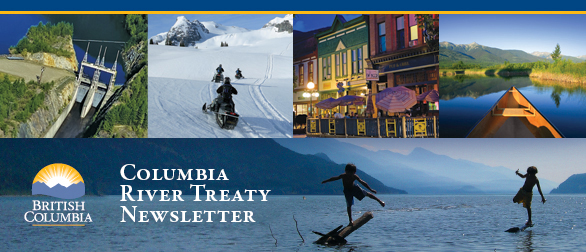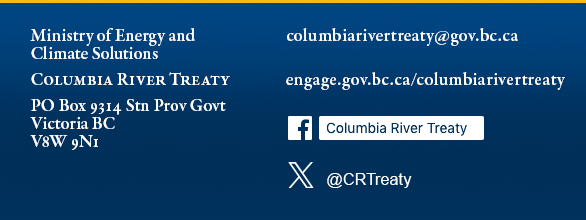Columbia River Treaty
Edition: September 2019

Treaty Negotiations Update
Sep 5, 2019
The seventh round of negotiations about the future of the Columbia River Treaty between Canadian and U.S. delegations took place in Washington, D.C., on June 19 and 20.
Joining the Canadian team at the table for the first time, were official observers representing three Indigenous Nations of the Canadian Columbia Basin: the Ktunaxa, Syilx/Okanagan and Secwepemc Nations.
After the talks wrapped up, the Indigenous Nation representatives issued a statement, noting that “while a great deal of work remains to be done, we are very pleased with what we have observed and participated in to date. This precedent-setting role as observers builds on and enhances our important work with Canada and B.C. over the last two years.”
Katrine Conroy, British Columbia’s minister responsible for the Treaty, called it a “historic moment” and added that the presence of Indigenous Nations at the negotiations is “a very significant step forward, not just in terms of the Columbia River Treaty, but also in supporting our government’s commitment to reconciliation and the United Nations Declaration on the Rights of Indigenous Peoples.”
Bill Green, the official observer for the Ktunaxa Nation, spoke with Wylie Henderson on the Drive FM in Cranbrook about how significant the Indigenous Nations engagement is. “The level of participation that we’ve got with the governments of Canada and B.C. and the other two nations is very much achieving that [goal] of working towards self-determination and the implementation of Ktunaxa rights,” Green said.
Since discussions about the Treaty’s future were launched in May 2018, negotiators have been meeting every two to three months at various locations in Canada and the United States. The next round of negotiations will take place in the B.C. Columbia Basin, in Cranbrook on Sept. 10 and 11, 2019.


